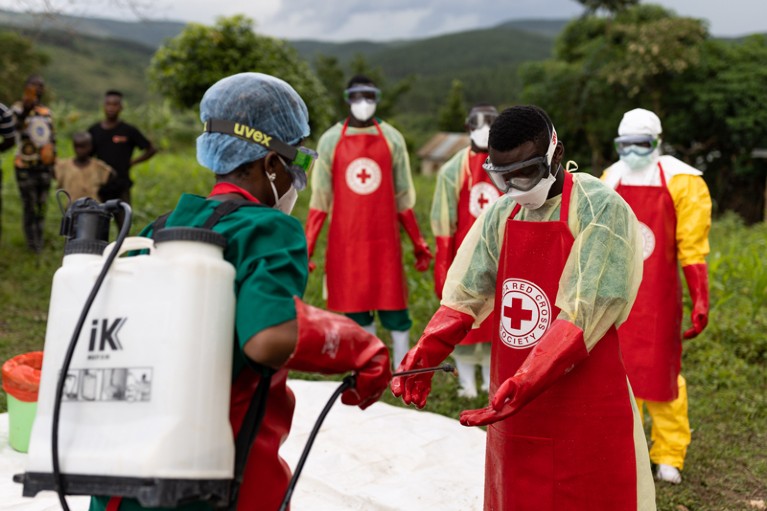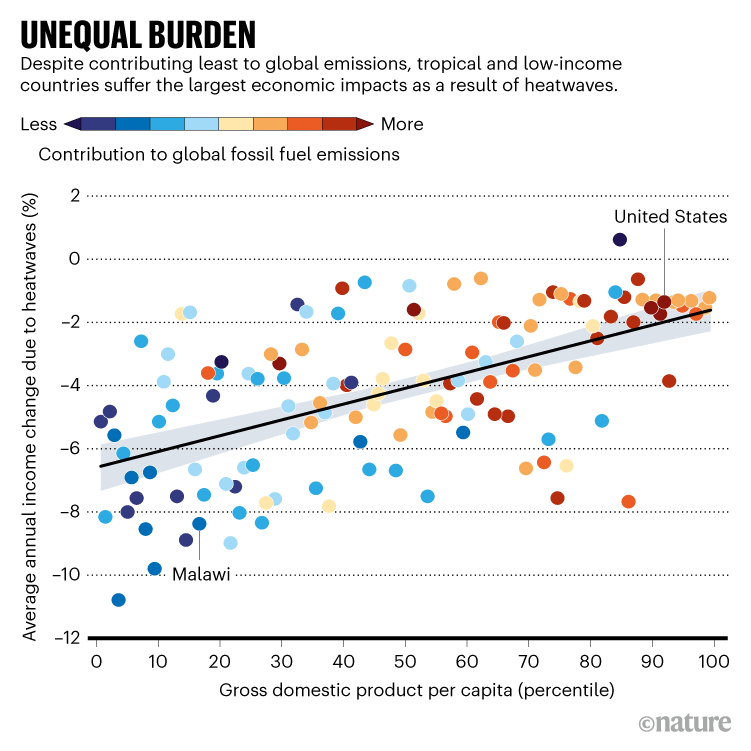Hello Nature readers, would you like to get this Briefing in your inbox free every day? Sign up here

There are no vaccines proved to protect against the type of Ebola currently circulating in Uganda.Credit: Luke Dray/Getty
Moderna is reportedly close to securing a deal to develop an mRNA vaccine against Ebola and other filoviruses. It’s not known whether the vaccine will target Sudan ebolavirus, the species causing the current outbreak in Uganda. (The two proven vaccines that prevent Ebola protect against another species, Zaire ebolavirus.) mRNA vaccines are promising because it’s easy to tweak the proteins that the mRNA encodes if a new species emerges, or to include different strands of mRNA to induce protection against multiple filoviruses at once. And the ability to stop infection — as well as preventing severe disease — would be crucial for a vaccine to help contain outbreaks quickly.
Nature | 5 min read
An analysis of the economic consequences of heatwaves estimates that the global economy lost between US$5 trillion and $29 trillion from 1992 to 2013, as a result of human-driven global warming. The effect was worst in low-income tropical nations, leading to a 6.7% reduction in their national income on average. High-income countries experienced a 1.5% average decrease.
Nature | 4 min read
Reference: Science Advances paper

Source: Ref. 1
Features & opinion
World leaders are converging on the idea that it’s time to stop using gross domestic product (GDP) as the world’s main measure of prosperity. Instead, we could complement it with a dashboard of indicators on the economy, health, ecosystems, climate and more. If this happens, it would be the biggest shift in how economies are measured since nations first started using GDP in 1953, almost 70 years ago. “Absurdly, GDP rises when there is overfishing, cutting of forests or burning of fossil fuels,” wrote UN secretary-general António Guterres in 2021. “We are destroying nature, but we count it as an increase in wealth.”
Nature | 9 min read
The United States has long been a top destination for international early-career researchers to do their PhD or postdoctoral training, but numbers have been dropping. Researchers who spoke to Nature cited concerns over visas, affordability, health care, racism and gun violence as reasons why they’ve chosen not to pursue positions in the United States.
Nature | 11 min read
Historian Alison Bashford’s multigenerational biography of the Huxley family illuminates a dynasty’s vexed influence on science and society. The central figures in this intergenerational study are the nineteenthth-centrury naturalist Thomas Henry Huxley, an early promoter of Darwin, and his grandson Julian Huxley, the evolutionary biologist who in 1942 codified the modern evolutionary synthesis by combining population genetics, inheritance and natural selection. The striking similarities between the two— including their contradictory morality — lead Bashford to suggest that they might be thought of “as one very long-lived man”.
Nature | 5 min read
